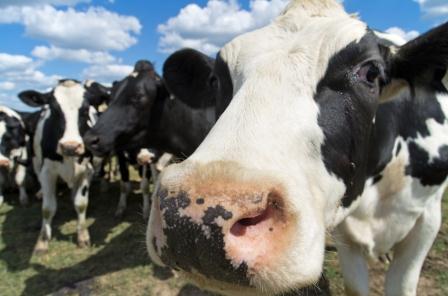Views of the EU Primary Food Processors on the European Commission’s Package on Official Controls
The EU Primary Food Processors (PFP) would like to express their view on the package of legislative measures on official controls as adopted by the European Commission on 6 May 2013 [1].
Aim of the EC Proposal
The European Commission stated that the proposed package aims, amongst others at:
- Enhancing health and safety standards for the whole agri-food chain
- Modernising and simplifying and making more risk-based the protection of health
- Making control tools more efficient and to guarantee the effective application of rules guiding the operation of the food chain
- Reducing the burden, having more efficient processes and measures to finance and strengthen the control and eradication of animal diseases and plant pests
- Helping business operators with simpler, science and risk-based rules in terms of reduced administrative burden, more efficient processes and measures to finance and strengthen the control and eradication of animal diseases and plant pests.
Aim of the PFP paper
PFP welcomes the proposal and its goals, which will overall contribute to strengthen and harmonise official controls across the Member States, while increasing transparency. The members of PFP have the highest quality and food safety programs in place, which are regularly audited and validated by national control authorities, and which are adjusted as far as their frequency is concerned, based on the results of performance of individual food and feed processors.
The EU Primary Food Processors (PFP) would like to focus their comments on the following aspects:
- New powers conferred upon national authorities and effects on increased transparency
- Financing of official controls
- Red tape on procedures for food business operators
1. New powers conferred upon national authorities and increased transparency
In general - Whereas enhancing transparency is per se a valuable target to which PFP subscribes, this should be done based on clear criteria and uniform rules applicable across Member States. In practice, PFP believes that failure to do so will most likely lead to a misrepresentation of reality for consumers and to situations of competitive disadvantage for food business operators concerned. And this, without reaching the aim of making official controls more efficient.
In details - The weaknesses that PFP recognises in the Proposal are:
- The lack of indication of the following elements, which provides a blank check to competent authorities with no guarantee of clear and transparent information to consumers:
- Circumstances under which information has to be disclosed: In its current format, the proposal authorises the disclosure of a large part of findings without specification. Clear criteria and rules should be established in this respect through level 2 measures (implementing or delegated acts) to be implemented in the same way across Member States
- Aim of disclosing information: Information should only be disclosed with a clear food safety goal. It should not be used to feed or shape statistics or provide information which is not meaningful for consumers. If this is not clearly identified, PFP doubts on the concrete use of the system envisaged in the proposal.
- What would concretely be disclosed: The current proposal foresees the disclosure of various written records, some of which are provided before the process has reached its final stage. PFP believes that only evidence-based results should be published. This is crucial to regain consumer trust. A multiplication of reports and written records would confuse consumers, ending up being misleading and unnecessarily damaging for the reputation of business operators. Care should be taken with sensitive information which can be stored on industry computerised information management systems. Access should be granted only in cases where there is evidence of a food safety risk. This is also crucial in terms of respecting confidentiality. Giving general access without detailed conditions and criteria would infringe EU and national rules on privacy and data protection.
- Without having clear criteria implemented across Member States in a uniform way, consumers will not benefit from clearer information
- Controls would be different as amongst others scope, methodology, duration or reporting vary from one Member State to another and from one product to another. PFP believes that this would not provide a clear basis on which consumers could make meaningful comparisons on how good producer X does in relation to producer Y.
- Rating: The proposal suggests a rating for how good a business operator does. Fine-tuning of the implementation of these provisions is left to the Member States, which will lead to differences between rating systems and misrepresentation. PFP therefore believes that only evidence-based results should be published. A rating system should only be introduced if based on solid, clear, transparent and uniform criteria applicable across Member States to all food and feed chain actors. Promotion of progresses made by the chain should be encouraged, rather than introducing a name-and-shame approach which will not necessarily have the desired benefits.
- Given points 1 and 2 above, the proposal would create a situation of competitive disadvantage for certain producers
PFP understands that the current proposal sets an overall frame for official controls. Level 2 measures (implementing and delegated acts) are therefore crucial in establishing a uniform set of detailed rules in EU-27. Failure to do that will result in creating competitive disadvantage in terms of product, Member State of production, etc. In this scenario, PFP strongly doubts that the need of not undermining commercial interests as per Article 7.2 b could be complied with.
It is imperative that information made publicly accessible should not undermine the legitimate commercial interests of business operators and not cover those which are of a professional confidential nature. There is a real concern that the proposed provisions would lead to a “name and shame” system of possible detriment of the credibility of the business operators. PFP is of the view that perfectly appropriate legal mechanisms to prosecute and punish non-compliance with the EU food and feed law are already in place in the Member States and that the need for the proposed new provisions has not been justified.
2. Financing of official controls
Under the proposal (Article. 77) food business operators will have to pay the overall majority of costs of official controls they undergo. Competent authorities will charge fees for additional costs they would incur as a result of, amongst others, additional official controls necessary following detection of non-compliance, corrective actions by the competent authority or a third party, or to assess the extent and the impact of the non –compliance (Article 84).
PFP strongly advocates that what pertains public good, needs to be financed in principle by public tools and not by the private sector. The reasons for this are multifaceted:
- Having the private sector financing controls on its own operations may cause risks of ending the independence of the bodies performing the controls. This is particularly so because “controls”, per se, risk becoming an economic/financial “product”. This could also lead to ”prioritisation” of risks, with controls requiring higher fees having a fast-lane treatment over other controls.
- PFP does not believe that introducing mandatory fees to be covered by the private sector will improve performance and efficiency of controls. The implementation of such a system would be complex and generate heavy administrative burden for both authorities and industry. “Expenses arising from additional official controls”, in article 84, which the competent authority shall recover from business operators, would cover virtually any step and action related to a control procedure. PFP believes that efficiency, rapidity or effectiveness of controls would not benefit from such a provision. For example, procedures that may be resolved fairly rapidly risk becoming endless matters, with a multiplication of non necessary phases.
Should fees be applied, they should cover all operators without exception, based on a flat-rate turnover and following clear and transparent rules. They should reflect the costs incurred and not those linked to the equipment or training as suggested in article 78.
3. Red tape on procedures for food business operators
The regime envisaged by the proposal would impact business operators, as the Commission acknowledges, because of the “time, staff, equipment and facilities being mobilised during controls”[2]. This would be amplified by the fact that the uncertainties highlighted above open the door to heavy administrative and financial burdens for both authorities and food business operators.
Issued in December 2013
The Primary Food Processors of the EU (PFP) is composed by:
European Starch Industry Association (AAF)
European Committee of sugar manufacturers (CEFS)
European Cocoa Association (ECA)
European flour milling association (European Flour Millers)
European Vegetable Protein Federation (EUVEPRO)
European Vegetable Oil and Proteinmeal Industry (FEDIOL)
PFP members process approximately 220 Mio tons of raw materials (cereals, sugar beet, rapeseeds, soybeans, sunflower seeds, crude vegetable oil, cocoa products, starch potatoes…) employing over 120 000 people in the European Union.
[1] Proposal for a Regulation on “official controls performed to ensure the application of food and fed law, rules on animal health, plant health, plant reproductive material, plant protection products (COM (2013) 265 final)” http://ec.europa.eu/dgs/health_consumer/pressroom/docs/proposal-regulation-ep-council_en.pdf
[2] European Commission executive summary of the impact assessment accompanying the Proposal http://ec.europa.eu/dgs/health_consumer/pressroom/docs/official-controls-es-ia_en.pdf

